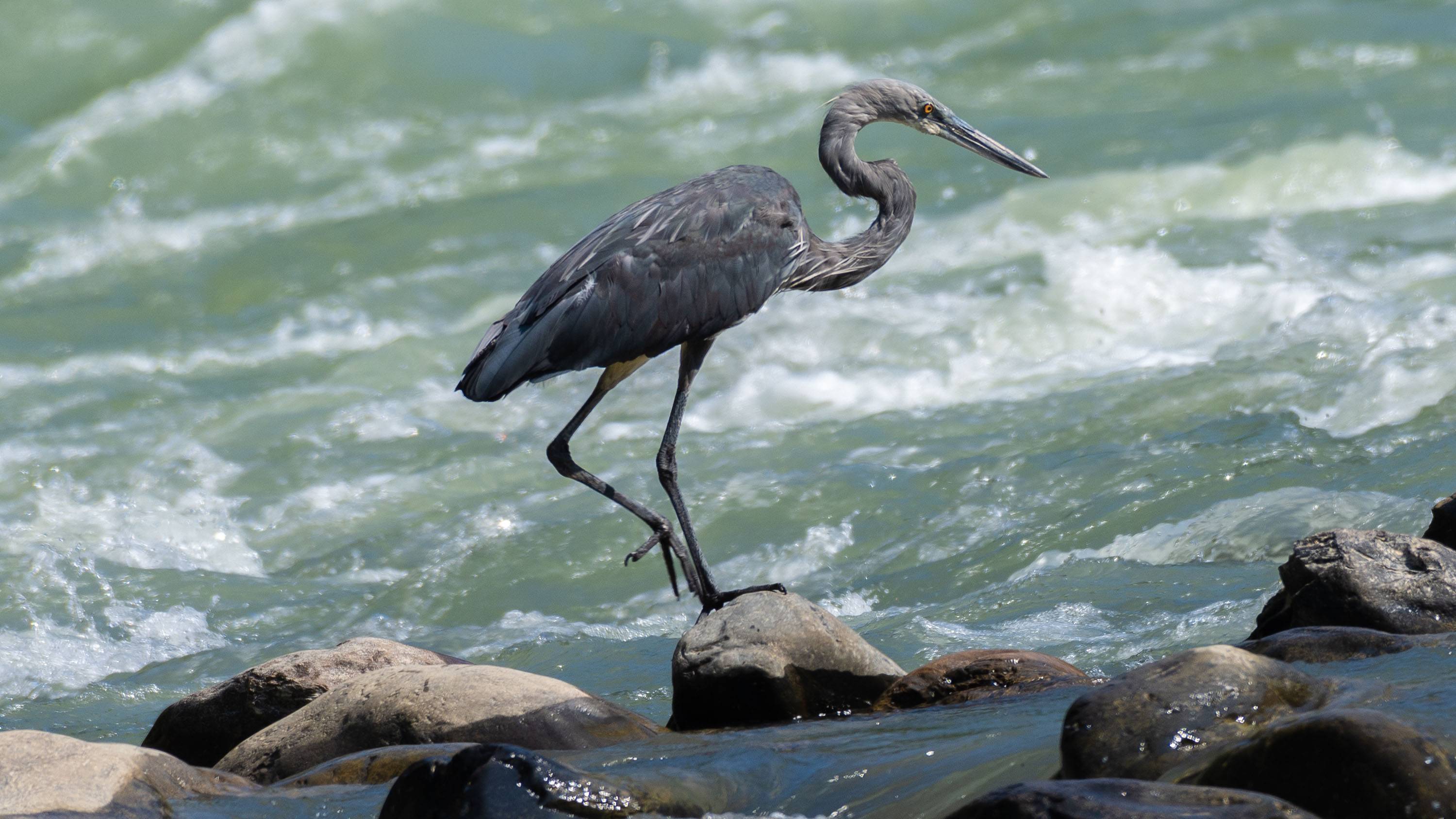
Pema Khandu, a third-year doctoral student in aquatic resources and integrative biology at Texas State University, has been awarded a fellowship from the WWF Russell E. Train Education for Nature (EFN) Program. The Fellowships provide financial support for students working on a master's or doctoral degree in conservation or related fields.
Khandu’s research focuses on conserving the white-bellied heron, a critically endangered species in the Punatsangchhu and Mangdechhu river basins of Bhutan. There are an estimated 60 individual birds left in the wild, and, while the species occurs in neighboring countries, Bhutan is the last stronghold. Khandu’s dissertation examines nest predation, roost site selection, and habitat assessment in hopes of gathering insights into the preservation of this species and broader biodiversity conservation efforts.
As an international student, he hopes this fellowship will provide him with essential training and mentorship to become a successful researcher in wildlife ecology and conservation, as well as an opportunity to collaborate globally with like-minded people.
Clay Green, Ph.D., Khandu’s research advisor, hosts an Avian Ecology Lab that Khandu joined in Spring 2022.
“Pema's research is very important in increasing our understanding of the threats impacting the species and exploring potential suitable habitat where birds may remain today undetected and/or suitable habitat where captive raised birds could be released into,” Green said. “He is committed to conducting research in his native country, and upon graduation, he would like to return to Bhutan in the hopes of serving as faculty at a Bhutanese university to educate students and conduct research on conserving the incredible biodiversity of Bhutan.”
